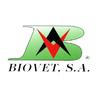Explore all the information on
Swine nutrition
Pigs require a number of essential nutrients to meet their needs for maintenance, growth, reproduction, lactation, and other functions. However, factors such as genetic variation, environment, availability of nutrients in feedstuffs, disease levels, and other stressors may increase the needed level of some nutrients for optimal performance and reproduction.
Swine require six general classes of nutrients: water, carbohydrates, fats, protein (amino acids), minerals, and vitamins. Energy, although not a specific nutrient, is an important nutritional component and is primarily derived from the oxidation of carbohydrates and fats. In addition, amino acids (from protein) that exceed the animal’s requirements for maintenance and tissue protein synthesis provide energy when their carbon skeletons are oxidized. Antibiotics, chemotherapeutic agents, microbial supplements (prebiotics and probiotics), enzymes, and other feed additives are often added to swine diets to increase the rate and efficiency of gain, to improve digestibility, and for other purposes, but they are not considered nutrients.
Pigs require a more concentrated diet and should be fed a less-fibrous feed than cattle, sheep, or horses. As they grow, their nutritional requirements change and the diet should meet their needs in various phases of growth and stages of production.
Comments related to #Swine nutrition
Top 10 content about #Swine nutrition





























